This story was first published on September 20, 2021. It was republished on June 17, 2023.
Finding a flat is often stressful. For some, the process goes nowhere. And even if you get one, you may be paying through the roof for a shithole. So, is it time we get over the stigma of living with your parents as an adult?
It’s a running joke that living at home as an adult isn’t something we should be shouting from our parents' rooftops.
We’ve seen it referenced repeatedly throughout (western) popular culture as a sign of laziness, dependence or simply a red flag. The three word movie title ‘Failure to Launch’ where Matthew McConaughey lives quite happily with his parents, blissfully ignoring society's disapproval, says it all.
But with a nationwide shortage of housing, stagnant wages, and shitty damp flats becoming an acceptable standard of living - not to mention the pandemic - living at home has never been more attractive for a lot of people. It would also explain why more and more adults are living at home, and why for many cultures it’s always been, and still is, the norm.
We spoke to five people in their 30s reaping the benefits of living with their parents. We talk about what it’s like, what bothers them the most and how they feel about the shifting stigma of living at home.
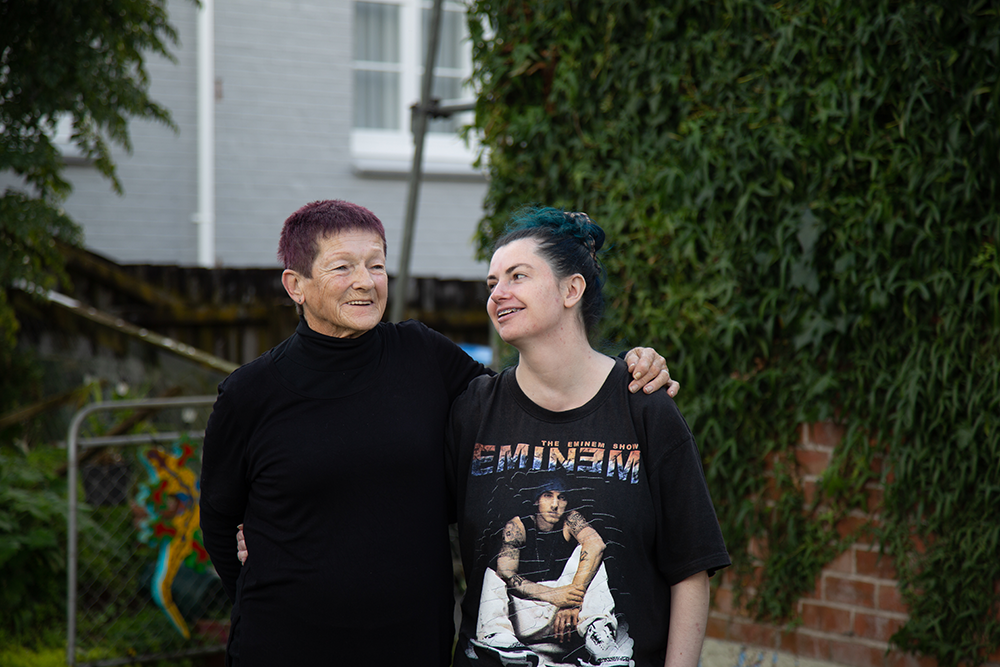
Anina McKenzie, 30
“I am 30 now and I haven’t left home at all,” says Anina. “And I’m never leaving home,” she laughs.
Anina lives with her mum Janice in a cosy Kāinga Ora property in Mt Roskill. The pair have been there since 2007. Before that, they moved around a lot.
“It’s just me and mum,” Anina says. “Oh and our little dog Tibby.”
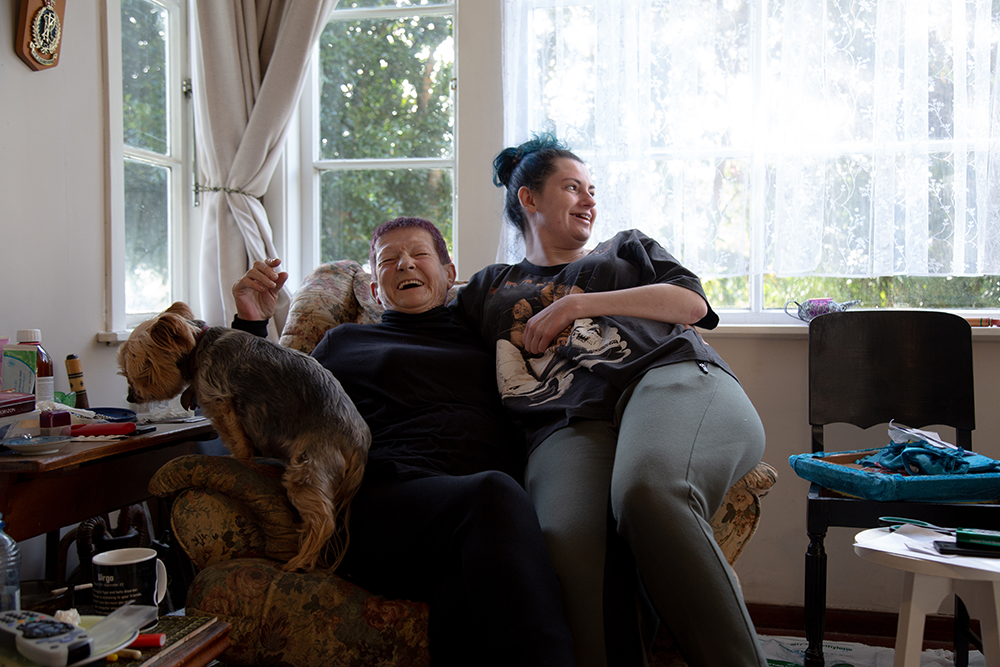
Anina says her reasons for living at home with her mum are two fold. One, the cost of rent in Auckland is ridiculous. And two, her social anxiety makes the idea of living in a flat with strangers too overwhelming to even bother with.
“With mum it’s easy. She understands me and knows when I need my space, or when I am anxious. We can just sit around and not say a word and be completely comfortable.”
“I’ve never really thought ‘Oh I have to leave now. I have to go out and find somewhere else to live,’” she says. “Everything I need is here.”
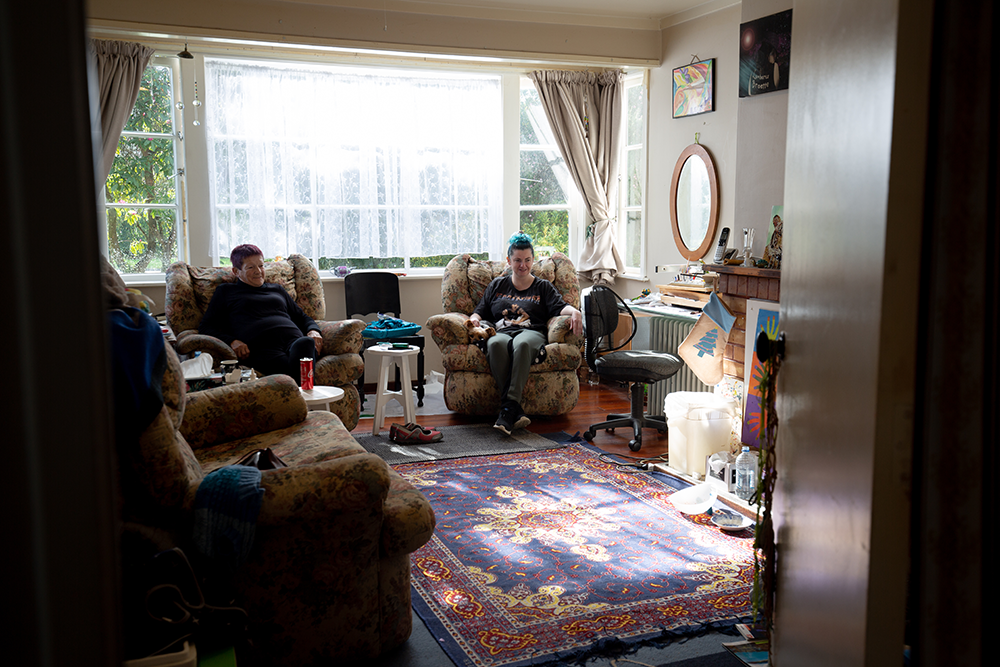
Anina says the only downside of living has to do with dating. When she starts chatting with a guy, she’ll eventually tell them she lives at home and they’ll say “Are you still living with your mother? I can’t go there!”
“But that’s not the case,” says Anina. “My mum sees this house as mine, as much as it is hers so of course I can bring people around.”
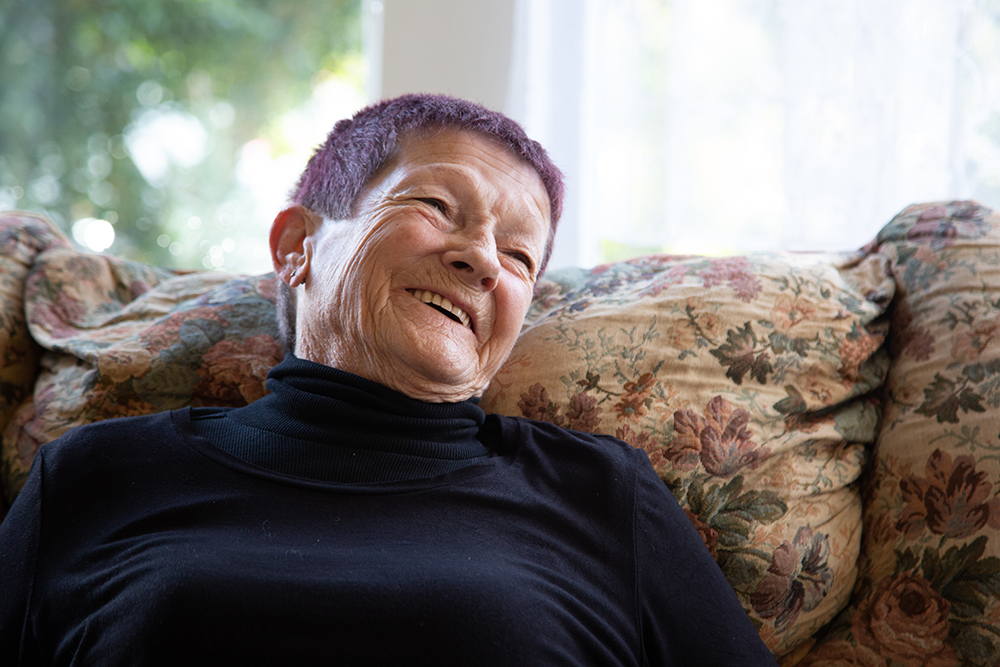
“It’s happened so many times that mum actually suggested that I start telling them that she's my flatmate, to make them feel more comfortable because there is definitely that stigma. But I guess it does make sense, you usually plan to meet the parents after months of dating, not at the same time as meeting the girl,” she says.
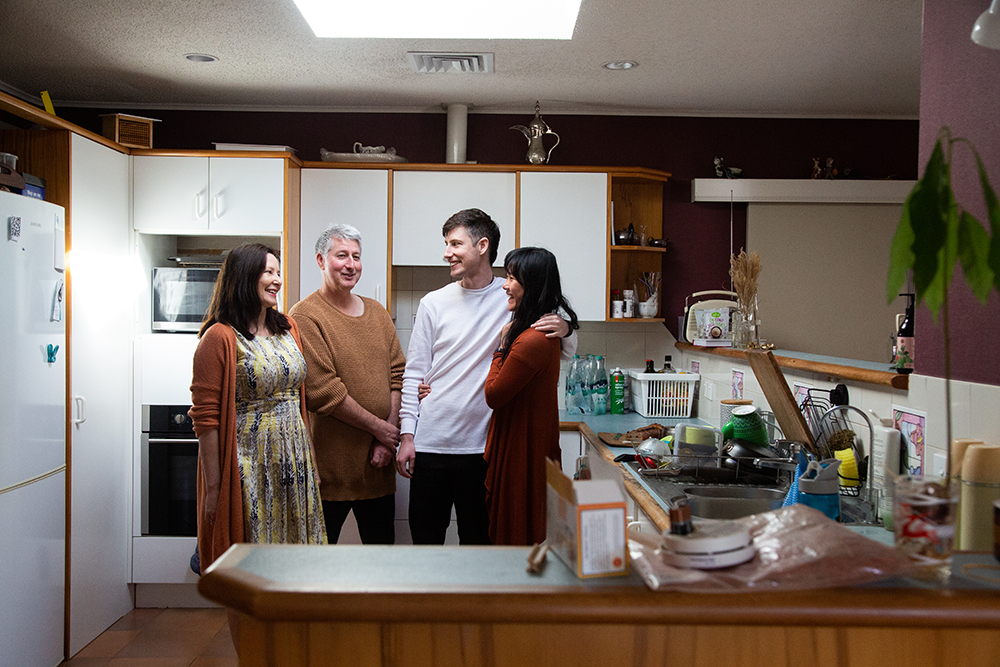
John Whiteside, 31.
“With my recent experience with flatmates, I really can't live with strangers,” says John. “It would be stressful to go through all of that again.”
John moved back in with his parents after he got caught up in a flatting experience that started with lies and fake social media accounts, and ended with a spiked drink and the police.
“One morning I just packed up my car and left,” he says. “I moved in with my parents and was unstable for quite a while.”
Despite moving in and out of his parents place before, he says living in his childhood bedroom as an adult this time around didn’t feel right.
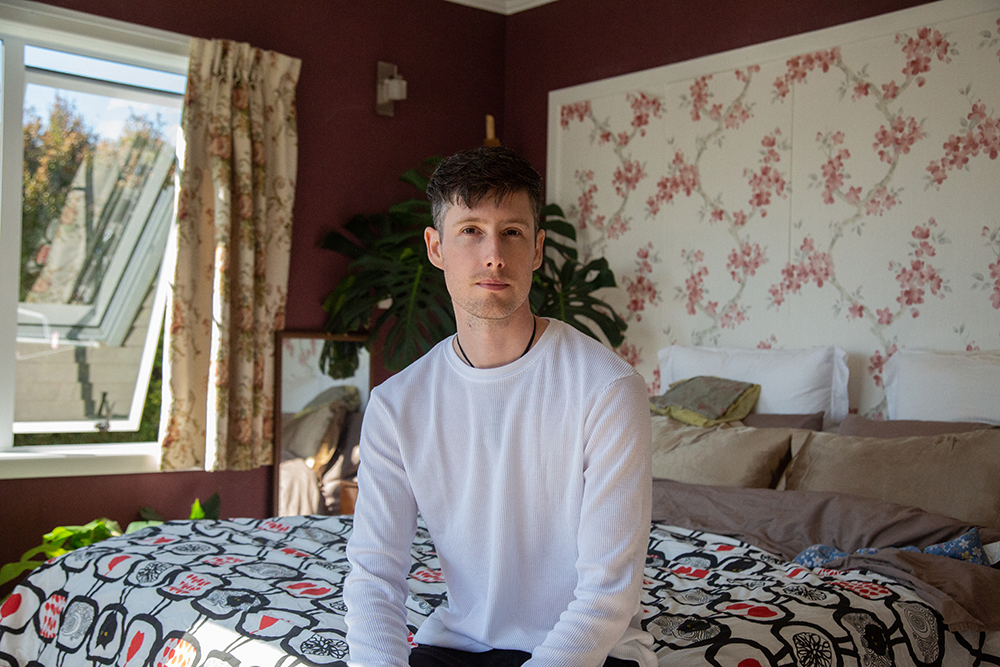
“When you're in a space like that you don't feel independent, even though you're justified for staying there for whatever reason, it still doesn't feel right. You can't really put your own flag down and I'd notice all these habits I had as a teenager would start to come back.”
That’s when John, his partner Angela and his parents decided to move into a new place together. The sun soaked home near Mount Albert has two lounges, one for the parents, and one for John and Angela, which is then connected to a shared kitchen and dining room.
“All of our names are on the lease and we split the bills evenly. So it doesn’t feel like I am living at my parents place anymore, it feels like we are living together at our place.”
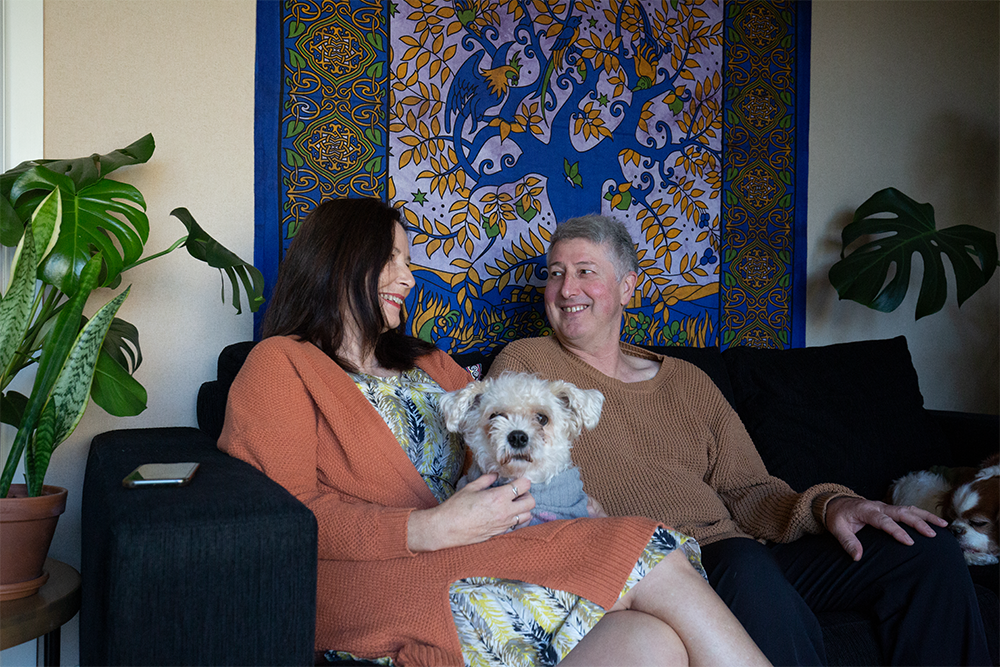
John’s parents Dale and Nick, with their dog Bella.
John says flatting with his parents is much cheaper than finding a small place for just him and his partner. “The more people are living in the house, the cheaper it is. And that helps so that we can save for a deposit. Without living like this, saving for a deposit would be a lost cause.”
When John looks around at other people in his life, he says it can be easy to start questioning his living situation. His brother, who is five years older than him, has done his travels, bought a house and is now living in it with his wife and their five year old.
“But when I tell people that I live with my parents, you get that funny look. It’s obvious that we have been taught that his path is the dream, and somehow living with your parents means you aren’t reaching your goals.”
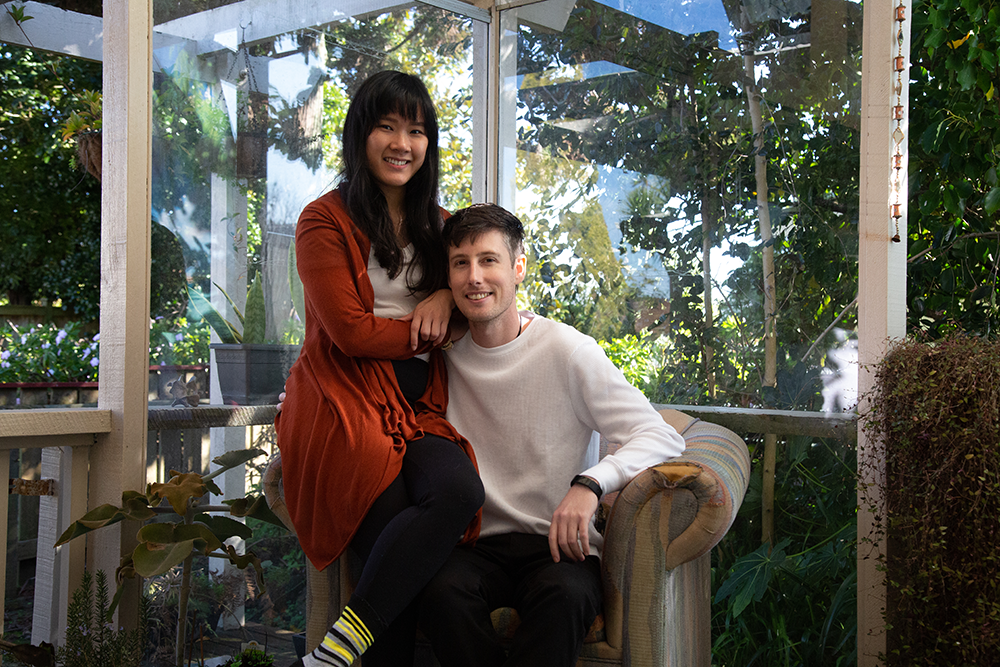
“But my partner is Malaysian and for her it’s always family lives together. And when she gets a house there is an expectation there will be a room waiting for her parents whenever they want. That way of living is the norm in so many cultures, but here in New Zealand there is this stigma around it. But why?”
You’d think with this housing crisis the stigma would shift, “and maybe it is”, says John.
“Think about all those big family houses where the kids have all moved out and there are just these rooms left empty. That happened to my parents, and they didn't want a flatmate so they just filled the rooms up with boxes.”
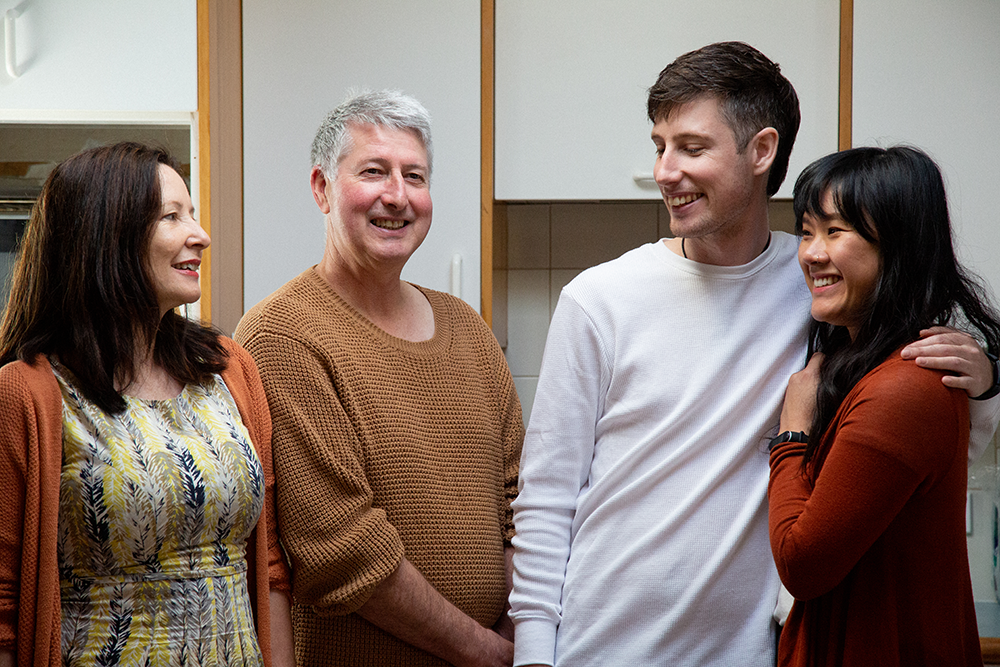
“I feel like the answer could be to give up the house when it is too big. But then we lose this idea of a house being sentimental and existing in a family beyond a decade. It makes sense to live intergenerationally, if we can.”
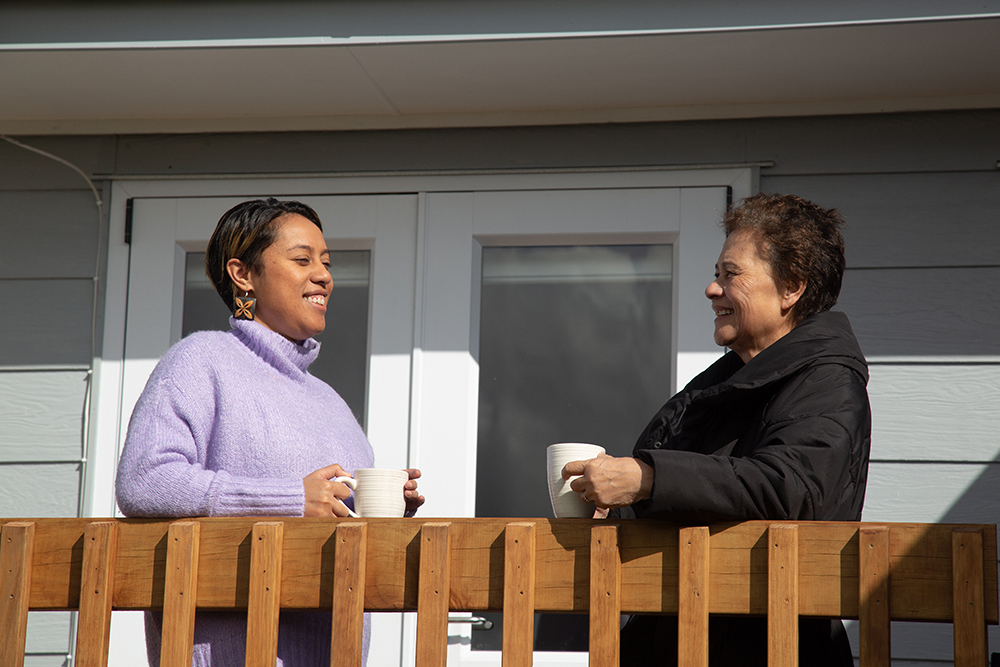
Mary Tiumalu, 30.
“As Sāmoan, essentially what guides us is how we look after our elders and how we respect them. And there is something beautiful in that.”
After Mary’s father passed away in October last year, her and her mother pooled their money together to buy a house in Henderson, West Auckland. Mary says from the outside their living situation looks like flatmates living together, but to her it means more than that.
“It's about being able to care for her, to give her comfort because she has worked so hard to contribute to our life. So it's my way of showing her that reciprocity.”
“It isn’t the experience of all Sāmoan women that they have to do the same, but for me it feels innate within me. You just know and feel you need to do it without it explicitly being a rule.”
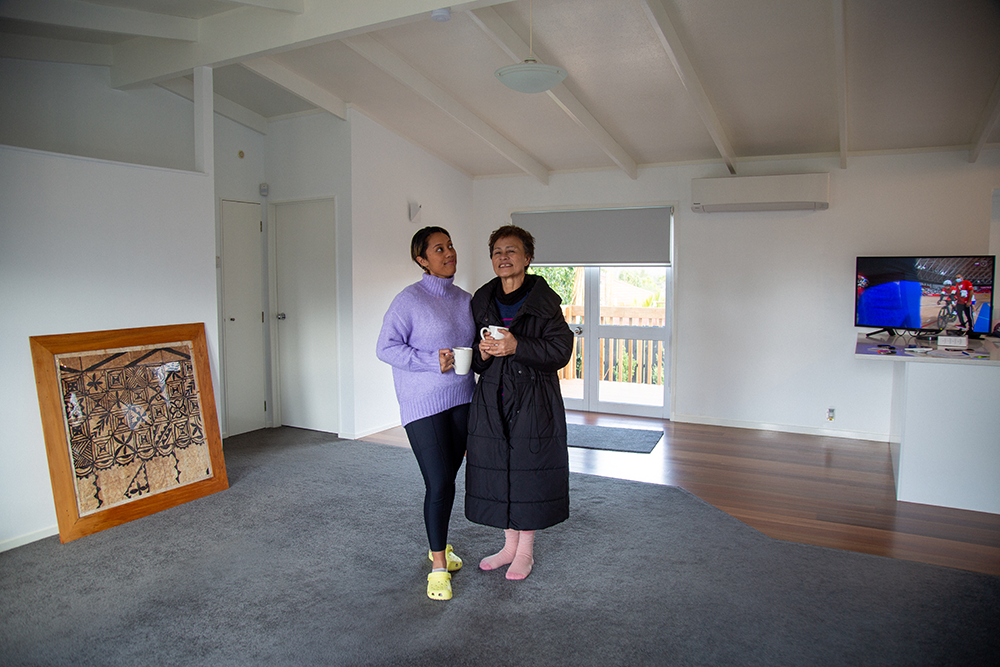
Mary and her mum Turu in their new home.
Mary says families living together intergenerationally is normal in Pacific cultures, but colonisation has created a stigma around it.
“We’ve constantly been trying to adapt and assimilate to the ways of New Zealand but also retain our culture. I think through this process we’ve been told the right way is this way, not that way. So we have been stuck trying to navigate why our way was the wrong way.”
When Mary was 26, she moved out of home and tweeted about it. She says some of her non-Pacific friends were shocked about how open she was about this and commented on how she was “finally” moving out.
“I actually deleted the tweet because I felt so embarrassed, but looking back I don’t know why it bothered me so much.”
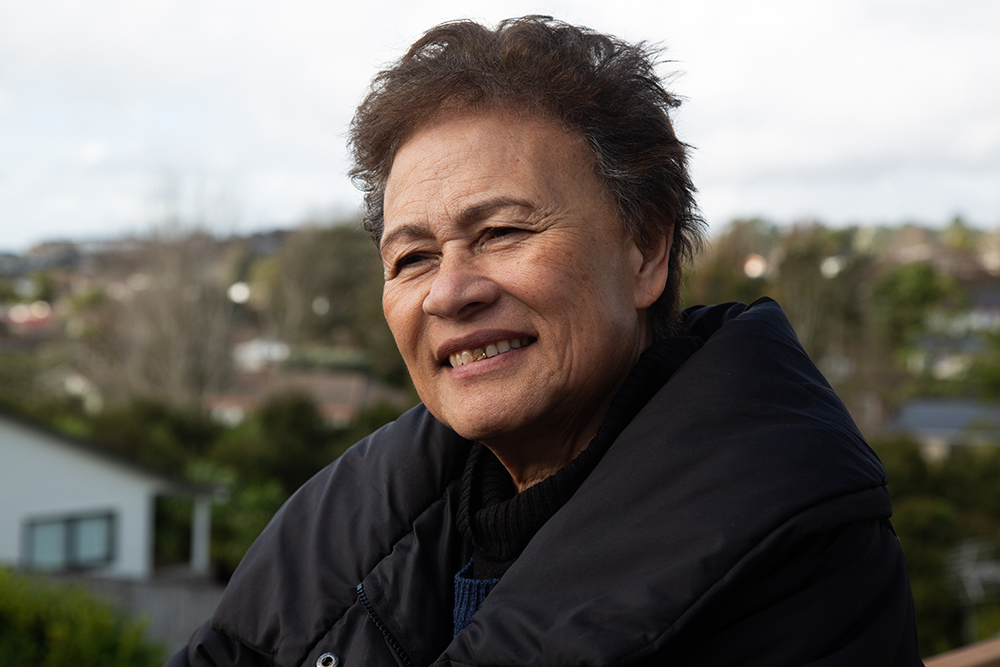
“We are all trying to chase the rat race. Living with independence and travelling the world is seen as success. But for me, I got so much closer trying to achieve these goals when I was living with my parents. I could not have bought my house without them.”
“I want to have my mum with me as long as she can. I wouldn’t want her to live anywhere else.”
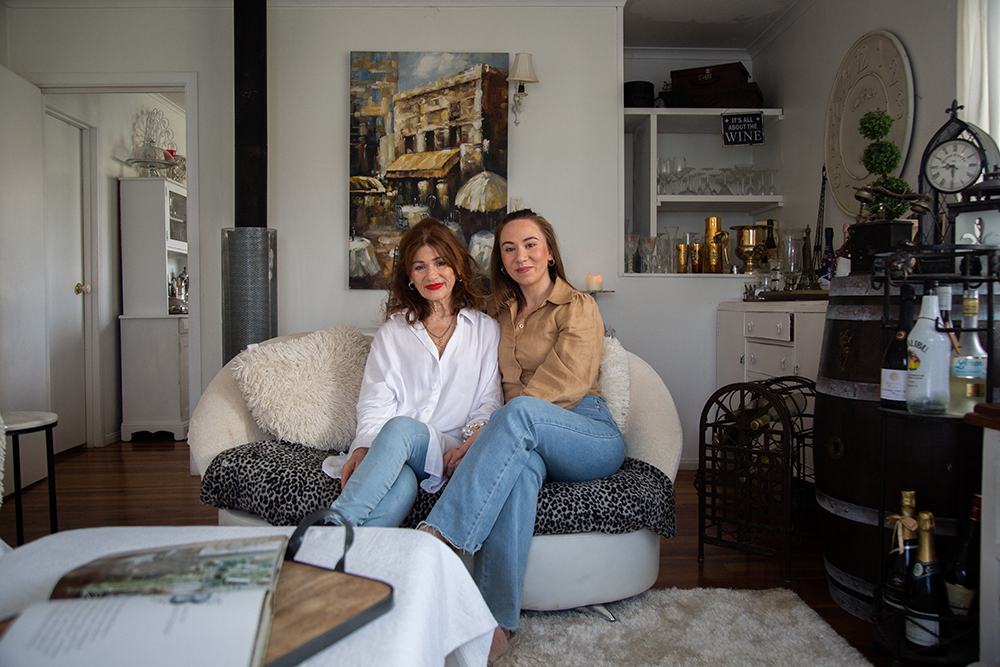
Tammy Groves, 33.
“There is absolutely a stigma attached to living at home in your 30s in our society. There is this attitude where once you are above 20 you should have your shit together. But right now, our world doesn’t always afford us to have our shit together, at 33 even.”
Tammy moved back into her mum’s home in Howick last year. After suffering from burnout, she “quit her life” she says. She walked away from her nearly six figure salary and the hour long train commute and took that time to overhaul her life.
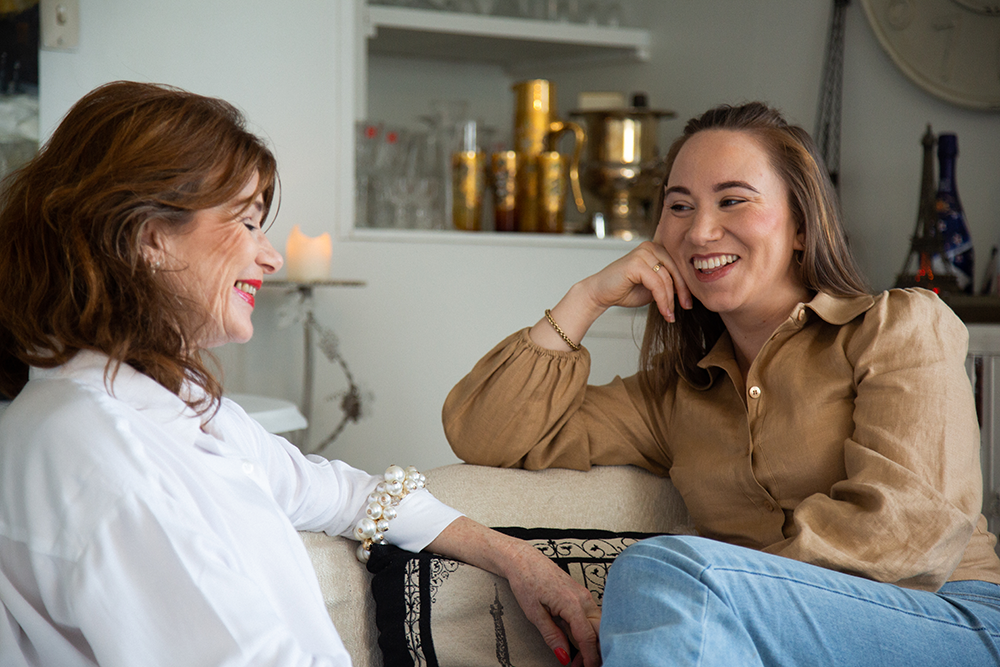
Tammy and her mum Jewel Belleé
“I saw it as an opportunity to sort of start again,” she says. “Moving back home, and not getting caught up in the rat race of paying rent and trying to get ahead, gave me the space and capacity to observe what was important to me.”
Tammy is now studying psychology part time and spends her spare time with her mum. “I value my relationship with my mum a lot. And I figure right now is the best time to spend all of this time together. Once I am settled and have a family, I won’t have as much time, so I love those moments where we are able to sit on the couch and chat or watch Netflix.”

“Right now I honestly don't see a reason for me to move out. I probably won’t until I have set my life up with someone else.”
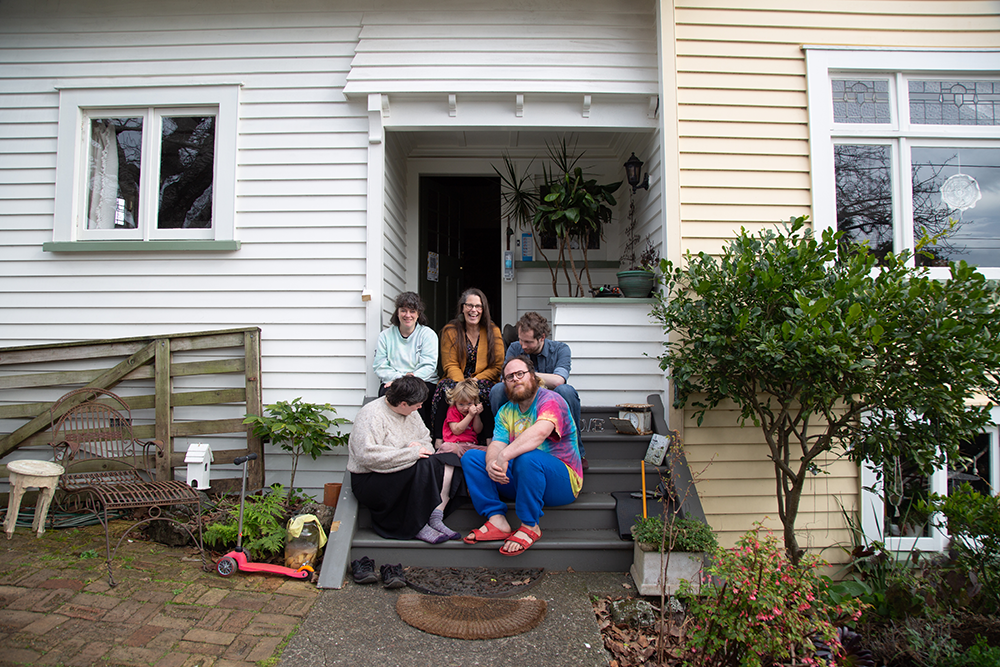
Jordan Windsor, 33.
“I don’t think of myself as normal, so I kind of flaunt living with my mum. I don’t experience that feeling of wanting to avoid bringing it up,” says Jordan.
Jordan lives with his mum, his four siblings, their partners, his daughter and niece - oh and 15 other people on a piece of family land in Mount Albert.
“There is a conjoined house where most of my family live, then there are tiny houses, caravans and two other houses on the same piece of land. It’s actually just a whole group of houses that my ancestors built, and then my uncle added to later on.”
Everyone pays rent towards the mortgage and the small community shares meals, holds meetings and working bees. Right now, they are converting an old tennis court into a community garden.

Jordan’s mum Heather says by living together and collectively chipping away at the mortgage, there is more chance her kids and grandkids will have a secure home for generations.
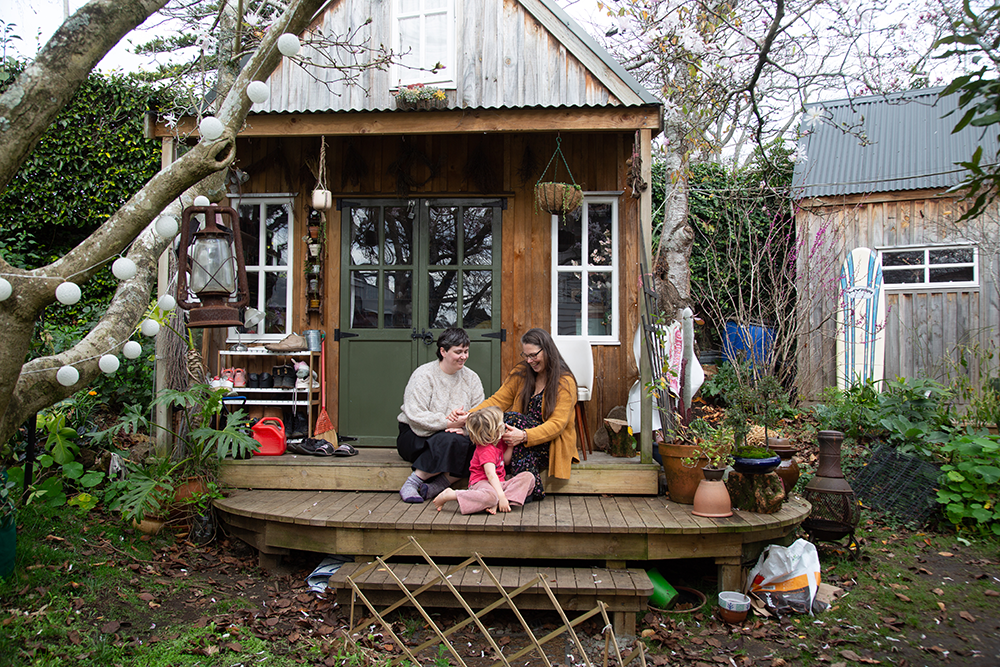
Jordan’s sister Jasmine, daughter Willow and his mum Heather.
“They are contributing to keeping this home after [my] divorce,” she says. “Divorce happens and it breaks up a home and so you have to divide everything and you lose your root. This is our root. This is our history. So we have everyone living together to keep this house.”
“But that doesn’t mean living with your children like this is easy, every day it’s challenging.”

“It’s hard and it’s messy,” says Jordan. “But I lean into that.”
“I wouldn’t go so far as to say the stigma is unjustified, there is a lot of comedy to be had with trying to live with your mother. There's this natural tension that you've cultivated over your entire lifetime because you've seen each other at your absolute worst.”
“But more and more, I do think the stigma is becoming a bit redundant. It feels like society has changed but the joke hasn’t.”

Jordan traces the stigma of living at home back to the origins of advertising and the idea of consumerism. He says images that we have been shown through movies or media have shaped what we think are our dreams and goals.
“It’s this idea of individualism at its heart. We go off on our own, we buy our own car, save up for our own house. We have been sold an idea that being individual and independent is how we learn to define ourselves.”
“But I think it is an incredibly white idea, and that makes it easier to reject. Obviously, many tribal and indigenous cultures are totally unshackled from this stigma.”
“I plan to live with my mother for the rest of my life. I mean, if she'll have me, I'm probably the difficult one.”